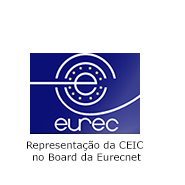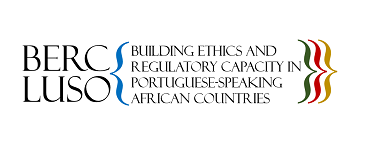NORMATIVO INTERNACIONAL
Recommendations on the use of Auxiliary Medicinal Products in Clinical Trials written and endorsed by the Clinical Trials Coordination and Advisory
Group (CTAG) - March 2024
Group (CTAG) - March 2024
Guidance on the management of clinical trialsduring the Covid-19 (coronavirus) Pandemic - Version 4 - 04/02/2021
This detailed guidance is intended to provide advice on the format and content of the information to be submitted to an Ethics Committee in any EU Member State for: a request for an Ethics Committee opinion on a proposal to undertake a trial on a medicinal product for human use, a notification of a substantial amendment and the request for an Ethics Committee opinion on a substantial amendment, a notification of the Ethics Committee on the end of the trial or an early termination of the trial.
Directrizes pormenorizadas para a apresentação às autoridades competentes do pedido de autorização de um ensaio clínico com um medicamento para uso humano, a notificação de alterações substanciais e a declaração de conclusão do ensaio
This detailed guidance sets out guidance on the collection, verification and presentation and decoding procedures of adverse event/reaction reports arising from clinical trials on medicinal products for human use. In addition, it sets out the responsibilities of the concerned parties.
Detailed guidance on the collection, verification and presentation of adverse event/reaction reports arising from clinical trials on medicinal products for human use (¿CT-3¿)
Good Clinical Practice (GCP) is an international ethical and scientific quality standard for designing, conducting, recording and reporting trials that involve the participation of human subjects
International Council for Harmonisation df Technical Requirements for Pharmaceuticals for Human Use (ICH)
Recommendations of the ad hoc group for the development of implementing guidelines for Directive 2001/20/EC relating to good clinical practice in the conduct of clinical trials on medicinal products for human use
Declaração dos princípios éticos para a investigação clínica, incluindo investigação em material humano e dados identificáveis, elaborada pela Associação Médica Mundial.
On July 12, 1974, the National Research Act (Pub. L. 93-348) was signed into law, there-by creating the National Commission for the Protection of Human Subjects of Biomedical and Behavioral Research. One of the charges to the Commission was to identify the basic ethical principles that should underlie the conduct of biomedical and behavioral research involving human subjects and to develop guidelines which should be followed to assure that such research is conducted in accordance with those principles. In carrying out the above, the Commission was directed to consider: (i) the boundaries between biomedical and behavioral research and the accepted and routine practice of medicine, (ii) the role of assessment of risk-benefit criteria in the determination of the appropriateness of research involving human subjects, (iii) appropriate guidelines for the selection of human subjects for participation in such research and (iv) the nature and definition of informed consent in various research settings. The Belmont Report attempts to summarize the basic ethical principles identified by the Commission in the course of its deliberations
International Ethical Guidelines for Biomedical Research Involving Human Subjects Prepared by the Council for International Organizations of Medical Sciences (CIOMS) in collaboration with the World Health Organization (WHO)









